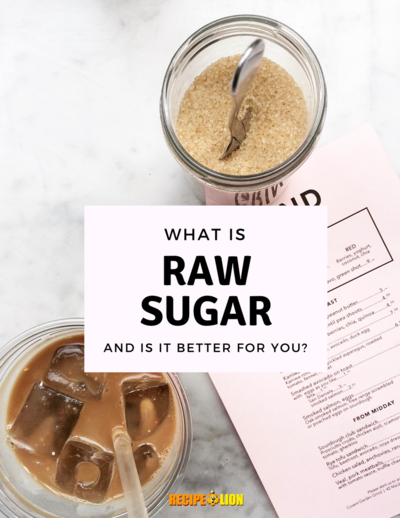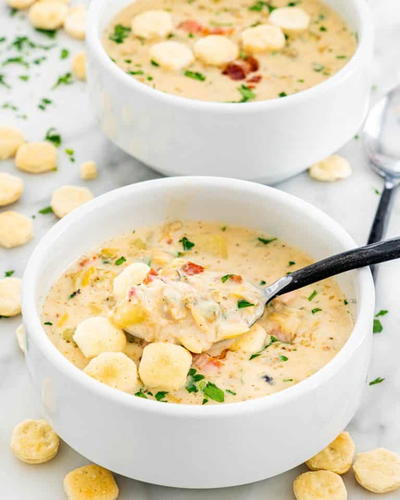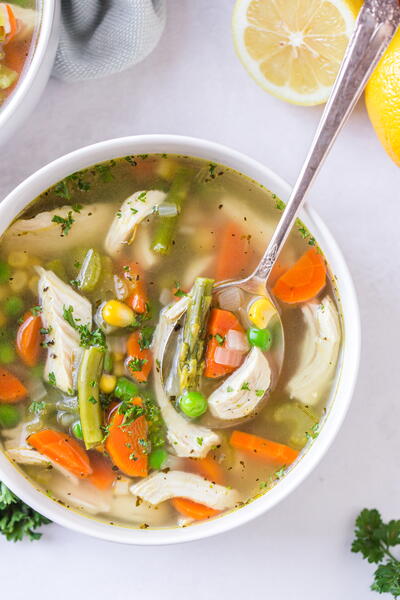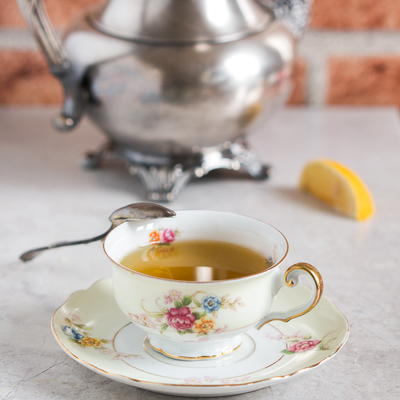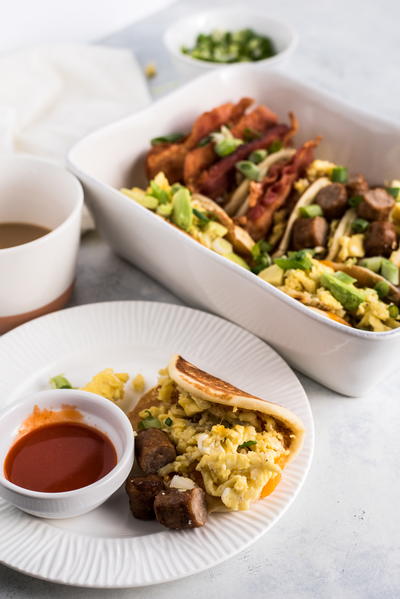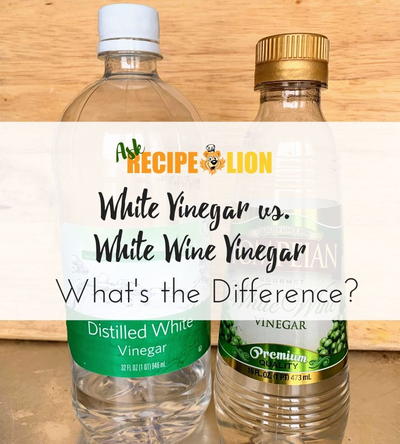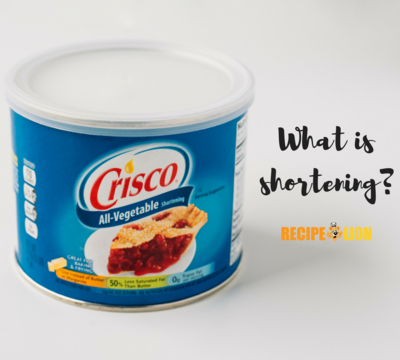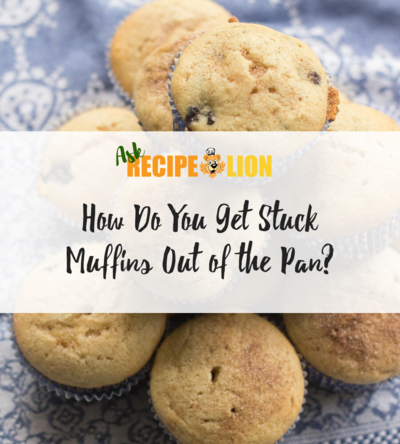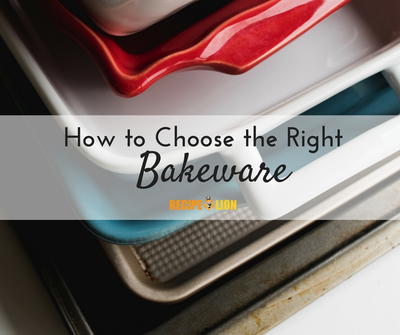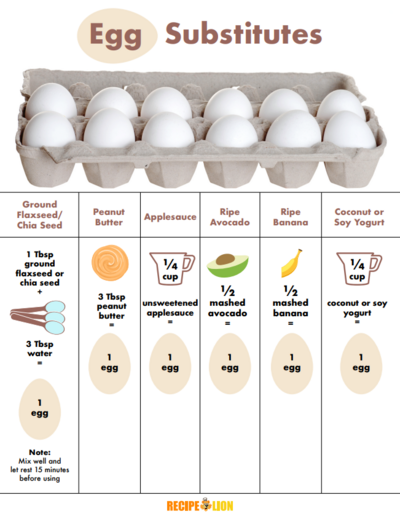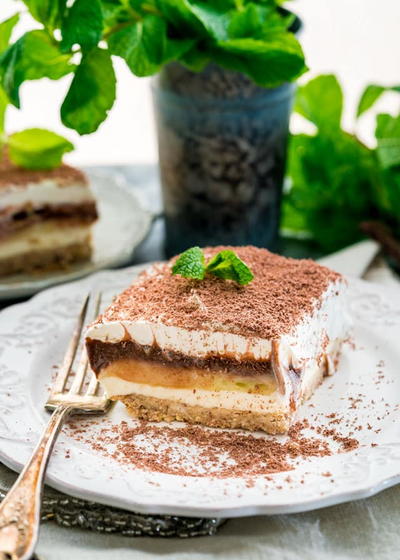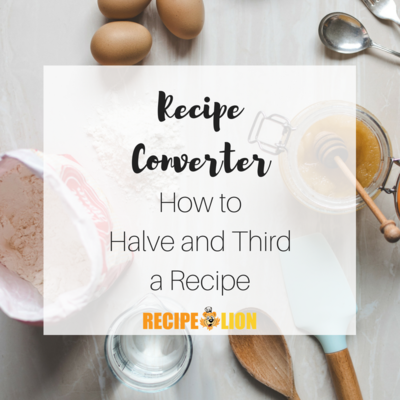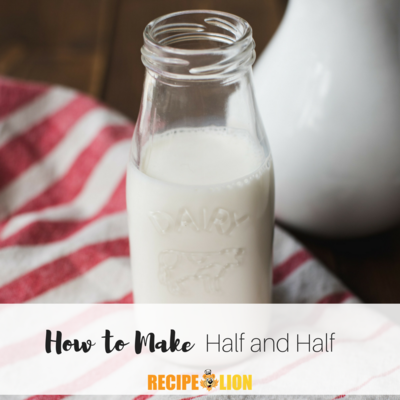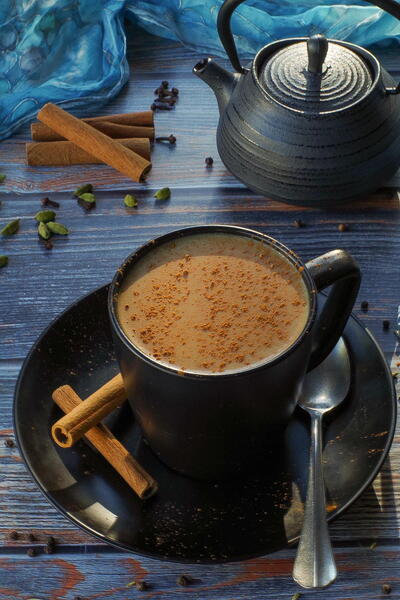What is Raw Sugar?
Exactly what is raw sugar, and is raw sugar better for you?
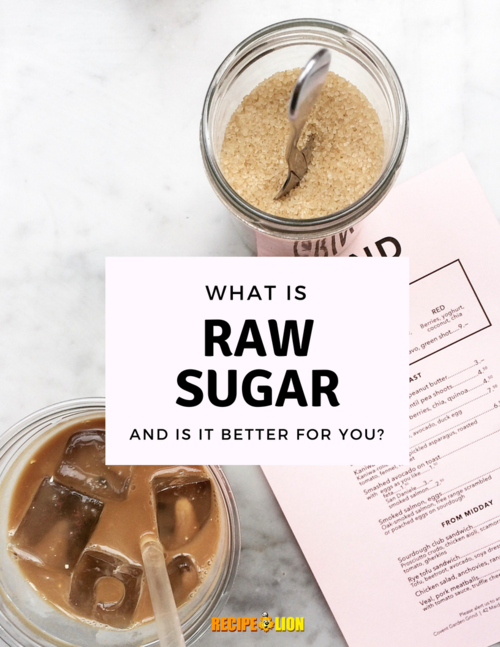
If you pay any attention to the health world, you may have noticed a new craze surrounding something called "raw sugar." It's used in everything from sweet drinks to cookies. This sugar can often be seen in coffee shops in plain brown paper packaging, and its chunky beige-colored crystals are certainly distinctive. Although raw sugar has been around for awhile, it's been coming into popularity lately, sparking the question, "What is raw sugar, exactly?"
If you ask any believer in raw sugar, the answer would probably be, "A healthy, natural, unrefined type of sugar. The difference between raw sugar and white sugar is that raw sugar has more nutrients." We all want to believe this is true! Guilt-free sugar? Sign us up! Especially since four pounds of raw sugar sells online for $12.99 while white sugar sells for $3.25, this seems to make sense. However, that raw sugar definition is not entirely true. There are many myths and misconceptions surrounding raw sugar. Nevertheless, raw sugar has some excellent benefits and traits that make it truly unique! So buckle in, because this is RecipeLion's comprehensive guide on what is raw sugar -- and is raw sugar better for you?
What is raw sugar?
Raw sugar, also known as turbinado sugar, is sugar that is not put through the full sugar refinery process. This results in larger granules and a light brown color. Refined sugar has been boiled and stripped of all of sugar cane's natural molasses -- also rendering the sugar white instead of brown -- but raw sugar retains that small bit of molasses, giving it a subtle, caramel-y flavor. Yum!
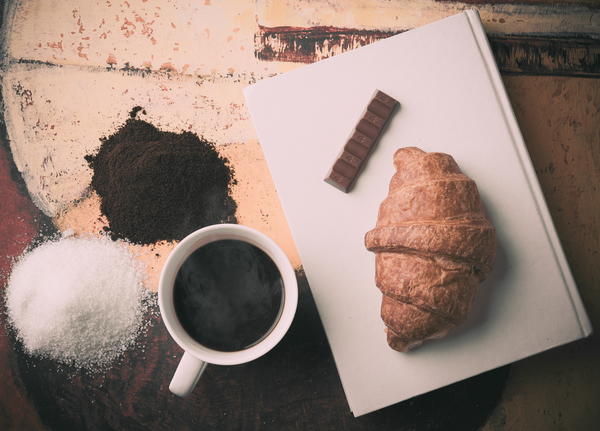
What is the raw sugar process?
Raw sugar is the result of the first step of sugar refinery. The raw sugar process is very simple, and knowing how to make raw sugar can educate you more about what you're putting in your body.
First, the sugar canes (or beets! Did you know sugar can come from beets?) are pressed and squeezed to harvest all of the sweet sugar cane juice. This juice is then mixed with lime to get the desired pH balance -- but don't worry, none of that lime flavor sticks around!
Next, this liquid is boiled in a contraption called an "evaporator." This removes the water from the mixture, leaving only syrup behind. This syrup is thoroughly dried using centrifugal force -- that is, a machine spins it around really, really fast. This results in the chunky sugar granules we know as raw sugar!
Actually, this is the first part of the refining process for all sugars, including white granulated sugar and brown sugar. If you continue along down the sugar refinery process, you will see the difference between raw sugar and white sugar, as well as the difference between raw sugar and brown sugar.
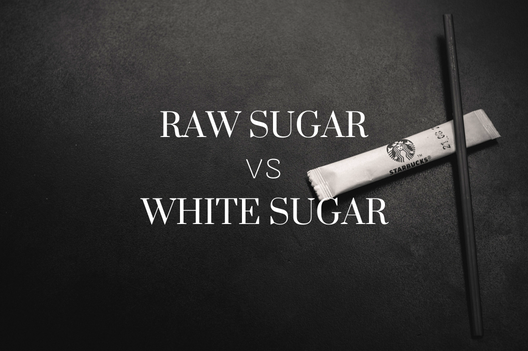
Raw Sugar vs. White Sugar
This is probably one of your largest questions! What is the difference between raw sugar and white sugar?
First of all, white sugar has a more neutral flavor than raw sugar and brown sugar, since both of those contain molasses. White sugar goes through the same process as raw sugar, but then it's boiled again and again until all the molasses is gone. Sulfur dioxide is added to the cane juice to bleach it, while phosphoric acid, calcium hydroxide or carbon dioxide remove impurities. Then the white sugar runs through screens to filter out too-large crystals, and the result is white granulated sugar as we know it!
We know, it can be a little nerve-wracking to throw around words like "bleach" and "acid," but all of the materials used to de-colorize and purify white sugar are naturally occurring minerals. White sugar is, of course, safe to eat -- humankind has been enjoying it for over one hundred years! The only thing in danger is your diet.
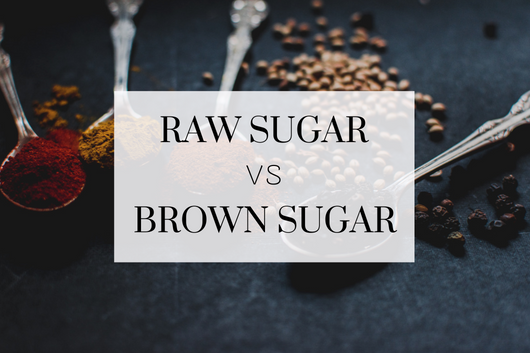
Raw Sugar vs. Brown Sugar
The difference between raw sugar and brown sugar is very small, although raw sugar is the first result of sugar refinery, while brown sugar is the last result.
Brown sugar is the exact same thing as white granulated sugar, but with molasses added back in at the end. This means that brown sugar has a stronger caramel taste than raw sugar, but still, brown sugar is a good raw sugar substitute.
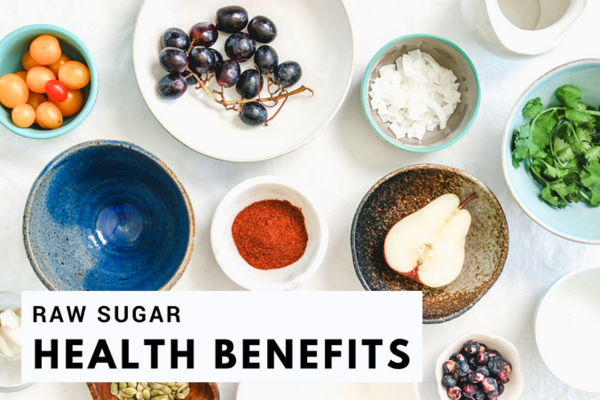
Raw Sugar Health Benefits
This is the question that everyone seems to be debating lately. Is raw sugar better for you than white sugar? We're all crossing our fingers hoping to discover a loophole that makes healthy sugar, but unfortunately, that day may not yet be here.
First of all, raw sugar and white sugar are basically identical in calorie count. Raw sugar's calorific value per teaspoon is 11, while white sugar's is 16. This is because raw sugar contains trace amounts of molasses, meaning that there's a little more water per teaspoon in raw sugar, and water, of course, contains no calories.
Secondly, raw sugar contains no beneficial nutrients. We know that white sugar is completely empty calories with no nutritional value, but raw sugar is essentially identical. True, molasses contains 3% protein, B-vitamins, and trace amounts of minerals like calcium and elements like iron and zinc, but there is so little molasses in raw sugar that it makes no significant difference -- see the chart below!
Lastly, the extra refining that white sugar goes through has no impact on its health value. The extra refining merely filters out chunky granules and makes it white through natural processes.
There are many reasons that you might want to choose raw sugar vs. white sugar, such as texture or subtle flavor differences, but the health benefits of raw sugar just don't exist. We're bummed, too.
Still, there is one good reason that the answer to "Is raw sugar better?" might be yes: the environment! Because raw sugar requires less processing, less energy is used and less waste is created during its production. (On the flip side, that means that brown sugar is the least eco-friendly sugar.)
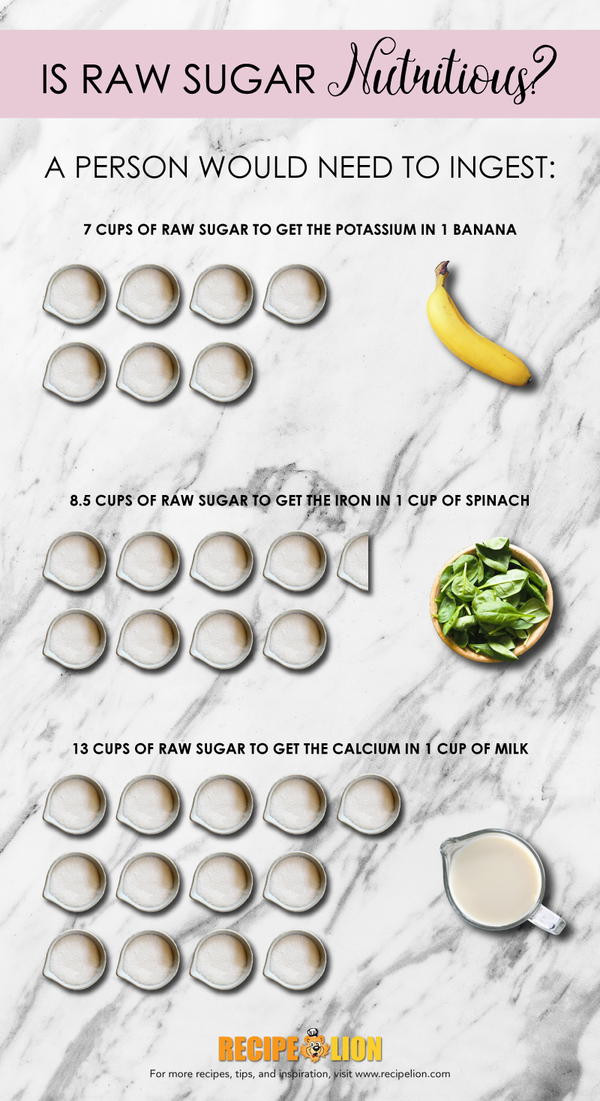
The skinny on raw sugar
There you have it: that's everything you need to know about raw sugar! Now that you know about the raw sugar process, the difference between raw sugar and white sugar, raw sugar vs. brown sugar (which makes a wonderful raw sugar substitute), and the sadly negligible raw sugar health benefits, you can make the most educated choice about how to satisfy your sweet tooth. Happy eating!
Does your family have any traditional sugary treats? We'd love to hear about them in the comments!

